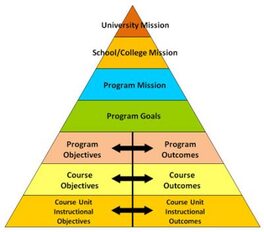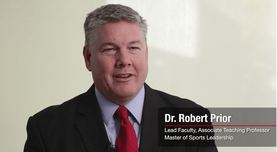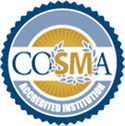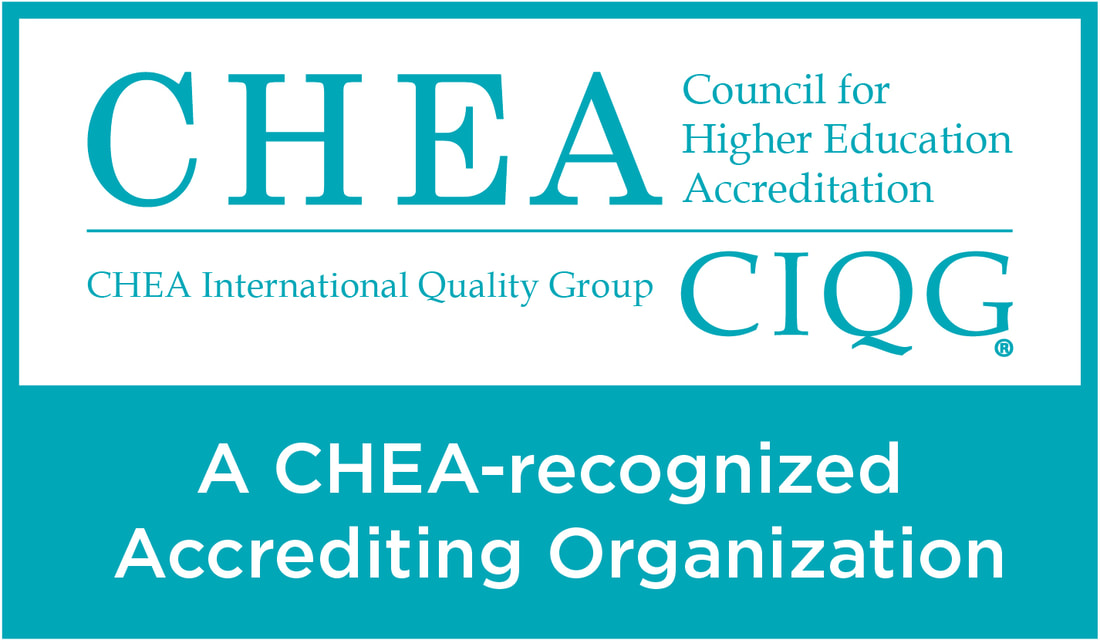Measuring Student Learning

Learning Outcomes are statements that describe significant and essential learning that learners have achieved, and can reliably demonstrate at the end of the program. Learning Outcomes identify what the learner will know and be able to do – the essential and enduring knowledge, abilities (skills) and attitudes (values, dispositions) that constitute the integrated learning needed for employment or further education. The outcomes assessment approach to education means basing program and curriculum design, content, delivery and assessment on an analysis of the integrated knowledge, skills and values needed by both students and society. In this outcomes-based approach, the ability to demonstrate learning is the key point. Outcomes are achieved results or consequences of what was learned; i.e., evidence that learning took place. Learning outcomes are student-centered and describe what it is that the learner should learn.
Effective learning outcomes
An effective set of learning outcomes statements informs and guides both the instructor and the students:
For faculty, it informs:
For faculty, it informs:
- the content of teaching
- the teaching strategies you will use
- the sorts of learning activities/tasks you set for your students
- appropriate assessment tasks
- course evaluation
- a solid framework to guide their studies and assist them to prepare for their assessment
- a point of articulation with graduate attributes at course and/or university (i.e. generic) level.
- an action word that identifies the performance to be demonstrated;
- a learning statement that specifies what learning will be demonstrated in the performance;
- a broad statement of the criterion or standard for acceptable performance.
- SMART (Specific, Measurable, Achievable, Realistic and Time-constrained) Outcomes? Or, VASCULAR Outcomes?
- Verifiable? Can we tell when they have been achieved? And can students?
- Action oriented? Do they lead to real and useful activity?
- Singular? Not combining two or more into one, making it difficult to assess if differently achieved, but readily matchable to student work produced.
- Constructively aligned? Clear alignment between aims (What do students need to be able to know and do?), what is taught/ learned, how these are assessed and evaluated).
- Understandable? Using language codes that are meaningful to all stakeholders.
- Level-appropriate? Suitable and differentiable between UG, Masters, Doctoral.
- Affective-inclusive? Not only covering actions but affective capabilities.
- Regularly reviewed? Not just stuck in history, and always fit-for-purpose.
COMMISSIONER'S CHATS
Writing Measurable Student Learning Outcomes
(recorded Zoom chat with Jennifer VanSickle, University of Indianapolis)
Outcomes Assessment plans, Rubrics and Annual Report content during the pandemic
(recorded Zoom chat with Curt Laird, Spartanburg Methodist College)
(recorded Zoom chat with Jennifer VanSickle, University of Indianapolis)
Outcomes Assessment plans, Rubrics and Annual Report content during the pandemic
(recorded Zoom chat with Curt Laird, Spartanburg Methodist College)
RUBRICS 101
What makes the process of developing and using rubrics effective and successful:
- Work together. Faculty: This means you!
- Understand the difference between rubrics for grading and assessment.
- Test the rubric before using it.
- Analyze results in a way that makes sense to you.
- Tie results back to curriculum and pedagogy.
WRITING STUDENT LEARNING OUTCOMES
- National Institute for Learning Outcomes Assessment
- New to Assessment?
- Degree Qualifications Profile - Scaffolding of verbs at associate, bachelors, masters levels.
- Bloom's Taxonomy - recently revised
- Specialized Knowledge - This category addresses what students in any specialization or major field of study should demonstrate with respect to that specialization. Tuning, a field-specific effort to map learning outcomes, is necessary to describe the concepts.
- ASSESS listserv - a place/resource to ask questions on assessment (Association for the Assessment of Learning in Higher Education)
REFERENCE ARTICLES
- "Outcomes: Getting to the Core of Programmatic Education and Accreditation" (ASPA, Association of Specialized and Professional Accreditors, June 2016)
- "SLO Assessment: Where the Buck Stops (And Starts)" (WASC Senior College and University Commission)
- A Board Member's Guide to Accreditation. (CHEA, 2016)
- "Aligning Assessments for COSMA Accreditation" (Journal of Physical Education, Recreation & Dance, September 2015)
- "The Current State of Student Learning Outcomes Assessment in U.S. Colleges and Universities" (NILOA, January 2014).
- "Rethinking the Bottom Line for Internationalization: What are Students Learning?" (The Chronicle of Higher Education, March 11, 2013).
- "The Little Assignment with the Big Impact: Reading, Writing, Critical Reflection, and Meaningful Discussion." (Faculty Focus, May 6, 2013).
- "What are Institutions Spending on Assessment? Is it Worth the Cost?" (National Institute for Learning Outcomes Assessment, August 2013).
- Writing Student Learning Outcomes Handout
- Addressing Assessment Fatigue: Or, C.A.V.E.: Colleagues Against Virtually Everything.
- AACU: Quality, Curriculum, and Assessment
E-portfolio assistance:
|
Outcomes Assessment and Northeastern University's Master of Sports Leadership Program
Watch the video |



